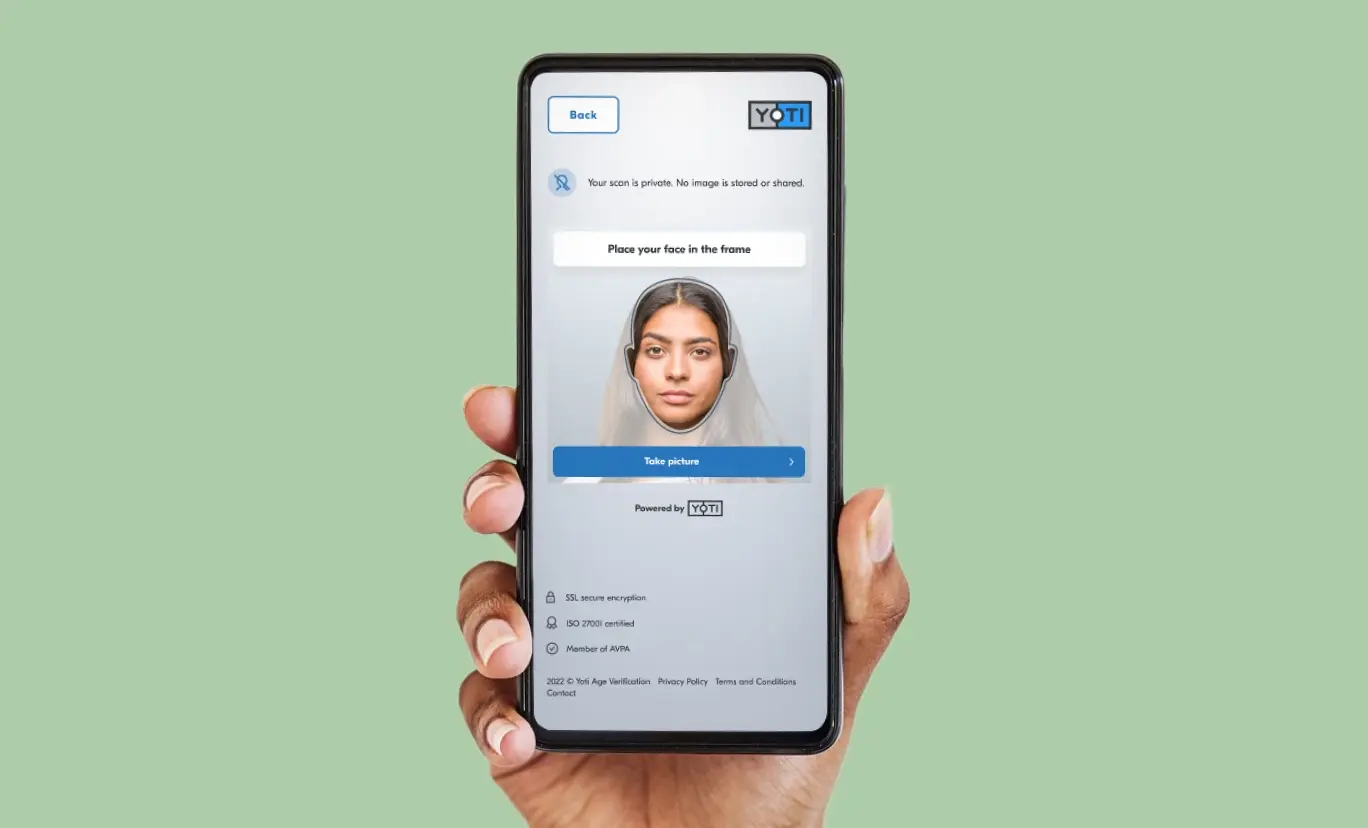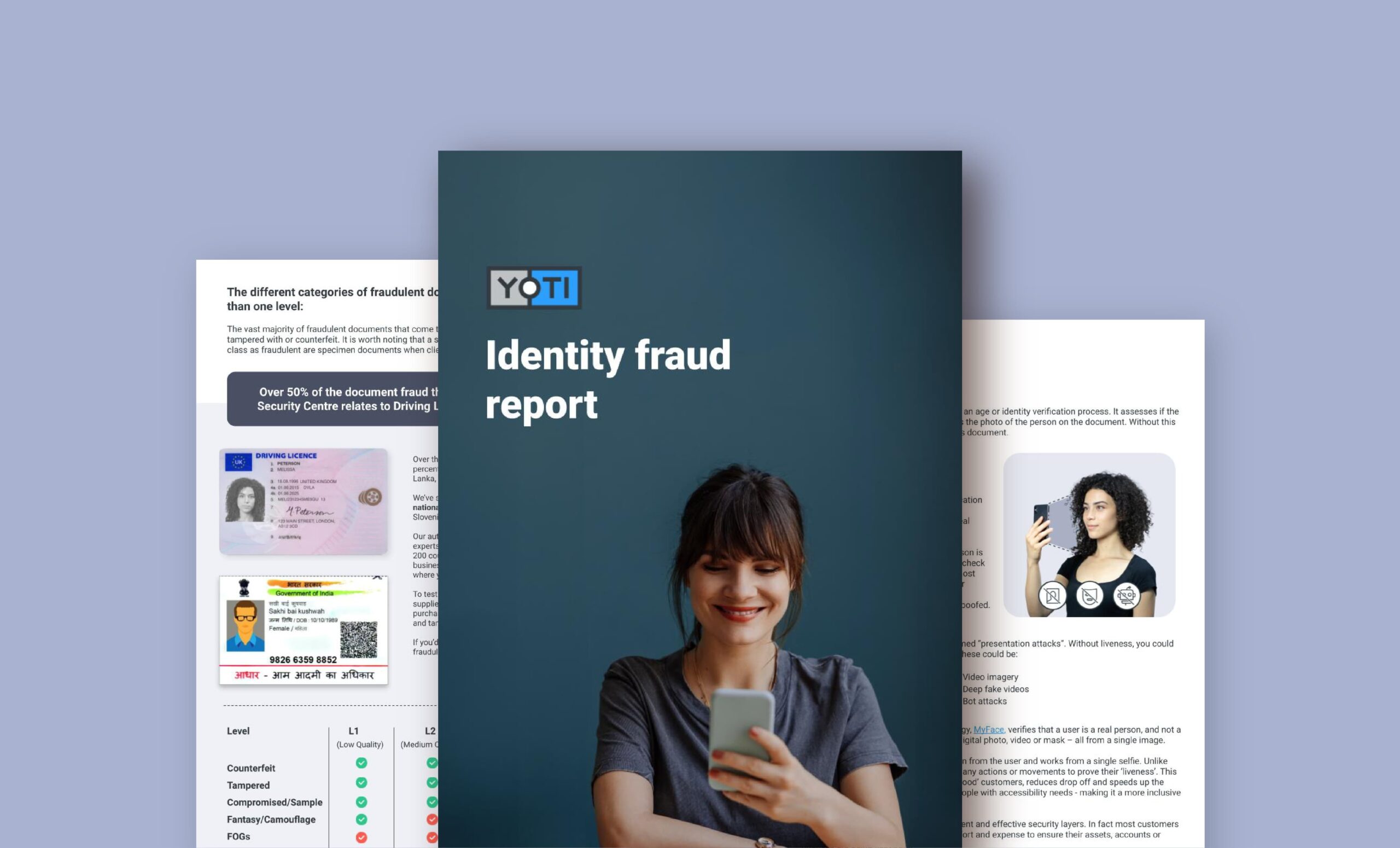How age assurance builds trust and safety on gaming platforms
There is a growing agreement that more needs to be done to improve online safety. Regulators around the world are introducing new laws to make the digital world safer and ensure young people have an age-appropriate experience online. With legislation such as the Age Appropriate Design Code, the UK’s Online Safety Act, and the EU’s Digital Services Act reshaping the industry, gaming companies are facing a new era of accountability and responsibility. From implementing age assurance measures to ensuring age-appropriate content and experiences, gaming companies must navigate the regulatory landscape while prioritising user safety and privacy. This blog explores some
Thoughts from our CEO
In this blog series, our CEO Robin Tombs will be sharing his experience, whilst focusing on major themes, news and issues in the world of identity verification and age assurance. This month, Robin chats about why facial age estimation is not easy to spoof, the recently passed age verification law in Texas, and the importance of human fallback for identity verification. Texas age verification law The US state of Texas can continue with their new law requiring platforms with adult content to verify the age of all users. The government said this is part of their legitimate interest in
Yoti assessed in the NIST Face Analysis Technology Evaluation program
An increasing amount of legislation is being introduced globally demanding that organisations effectively check the age of their users. It’s important that these age checks are inclusive; people should have a choice in how they prove their age. Regulators are recognising that not everyone will feel comfortable or be able to use a method based on identity documents. Facial age estimation gives people a way to prove their age without sharing their name, date of birth and other personal information from identity documents. It can improve online safety and help companies to comply with legislation, without having to process or
Our Fifth Regulatory Roundtable: exploring age assurance methods
As regulators and companies consider new laws to protect children and give them age-appropriate experiences online, they are faced with the challenge of how to determine someone’s age. We explored this topic at our latest regulatory roundtable; a lively and healthy discussion, chaired by our Guardian Gavin Starks. We discussed different age assurance methods, and the progress and widespread adoption of facial age estimation. We shared key updates on our technology, how facial age estimation can be configured to work with safety buffers, and demonstrated some live use cases. The roundtable also looked at why there needs to be international
Yoti Identity Fraud Report
We’re pleased to publish the first edition of our identity fraud report, which explores the fraud trends we’ve seen over the past 24 months. We delve into the tactics fraudsters are using and how these are evolving. We also explain why using technology and a team of verification experts together provides the best defence against fraud. Key takeaways from the report: It’s challenging to understand the exact figures and the true scale of fraud; businesses can only report on the fraud they know about Fraud is evolving; fraudsters are exploiting different tactics including deepfakes and tampered with documents The
DSIT report on public views of digital identities
Last year, the Department for Science, Innovation and Technology (DSIT) commissioned a public dialogue to seek views from the public on digital identities. They wanted to explore the benefits and concerns associated with digital identity services. We take a look at some of the key findings and themes from the public dialogue, and what this means for the future of digital identities in the UK. UK digital identity and attributes trust framework Digital identities give us a way to prove who we are, without needing to use physical documents. They can offer us greater privacy, security and convenience over






